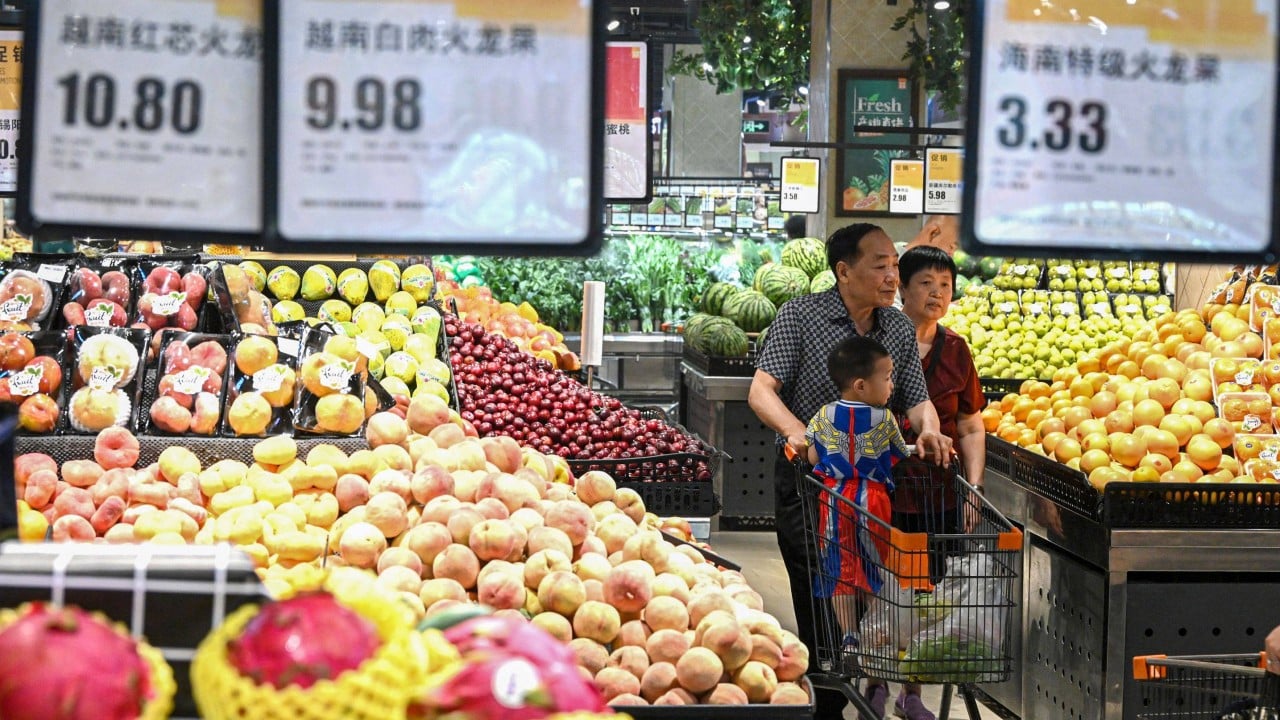China’s consumer price growth rose more than expected in July, rebounding to a five-month high, at a time Beijing is desperate to have consumers spend to boost the economy.
The consumer price index (CPI), a key gauge of inflation, grew by 0.5 per cent year on year in July, compared to an increase of 0.2 per cent in June, the National Bureau of Statistics (NBS) said on Friday.
The reading beat the expected 0.29 per cent growth projected by economists polled by Chinese financial data provider Wind.
Amid an overall economic slowdown, consumers in China remain unwilling to spend due to a prolonged property slump and a bleak job market, with the CPI having stagnated around zero since April last year.
On a month-on-month basis, China’s CPI in July rose by 0.5 per cent following a 0.2 per cent decrease in June, according to the NBS.
According to NBS data, consumer demand continued to recover last month while faced with the impact of rainfall and high temperatures.
Within the CPI, food prices in China remained unchanged in July from a decrease of 2.1 per cent in June, while non-food prices increased last month, year on year, rising by 0.7 per cent having risen by 0.8 per cent in June.
According to ING’s chief economist for Greater China, Lynn Song, a big part of the increase was due to food prices finally ending deflation to return to a flat reading, with a rise in pork and vegetable prices driving overall prices higher.
“Conditions are in place to see inflation trend a little higher in the coming months, but it should not impede further monetary easing,” Lynn said.
“With low inflation and weak credit activity, domestic factors continue to favour further monetary policy easing.
“We continue to look for at least one more rate cut this year with the potential for more if global rate cuts accelerate.”
Meanwhile, China’s producer price index (PPI) – which measures the cost of goods at the factory gate – slipped by 0.8 per cent last month, falling for the 22nd consecutive month, having also fallen by 0.8 per cent in June.
The reading was in-line with the expected 0.78 per cent decrease projected by Wind, with the NBS pointing to insufficient market demand and downward trends in prices for some international bulk commodities.
Elsewhere, China’s core inflation, which excludes volatile food and energy prices, rose by 0.4 per cent last month compared to a year earlier.


